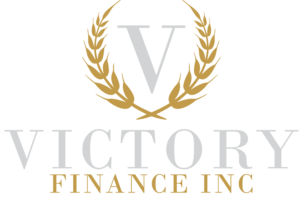This post is also available in: 中文 (Chinese)
Small Business Finance and Accounting Practice and Mistakes to Avoid
When you own a small business, you are responsible for all aspects of your business. One of the most crucial components of handling your business finance. Most small businesses don’t have the means to hire an accountant, however it is crucial to get yourself familiar with the following business accounting practices.
Financial Statements
Financial statements reflect your business’s well being. The three main types of financial statements include statements of cash flow, income statements and balance sheets.Cash flow statement includes details about the business’s physical cash with details about how the amount has changed over time.Income statement includes information about expenses and gross sales/revenue, for the specific period. When calculating the income statement, you need to include the profit margin, which is the total sales minus the cost of the sales which includes cost of goods/inventory purchase and operation expenses, along with the net profit, which is the money made by the business after all expenses have been deducted.
A balance sheet includes any liabilities, any physical and intangible assets and the equity on the date of the report. The sheet will include two sides: fixed assets and current assets. Fixed assets include any property or equipment owned by a business, while current assets include cash flow and any items that could be converted to cash. This sheet would also show information about business ownership and percentage of each owner. Make sure you review your financial statements on a regular basis to keep track of the success of your business and to determine areas for improvement.
General Ledger
A general ledger lists all of the various accounts and their activities and the balances of each one. It lists details of the financial categories, such as equity, expenses, assets, revenue and liabilities.Any time your business handles any transactions, such as receiving money from a customer, paying a bill to a vendor/service provider and yourself and your employees, they should be recorded in the general ledger.
Taxes
One of the most challenging aspects of business accounting is tracking all required taxes. There are federal and state business, payroll and sales taxes to state just to name a few. Taxes can eat up a lot of a you earning and your small business’s profits, but investing in tax-free retirement funds is one way to get around that problem. Conservative investment options allow you to report profits honestly while maximizing the earnings and paying less in taxes.
Budgets
Whether your business has no worker or multiple employees, you’ll need to set budgets. A lack of a budget will also cause financial strain for your business and also make it more challenging to get your business in control, which means your business avoids spend money on something that doesn’t offer a good ROI (return on investment).
Mistakes to Avoid
One of the most common mistakes made by small business owners is ignoring the significance of accounting. The key to success is effective accounting practice, which involves recording every single thing that happens within the business. All the transactions should be recorded, properly categorized, and accounted for in your general ledge and reflected in your financial statements. This can avoid a lot of stress and headache when your annual tax is due. Instead of making it more difficult for yourself, allocate the time throughout the year to establish better accounting practices. Another common mistake is reporting profits too early. For example, if you close a $10,000 deal that will cost you $4,000 to fill, you shouldn’t immediately track a $6,000 profit. The profit shouldn’t be calculated until the goods have been delivered or the services have been provided. If your company experiences a delay in filling the order or the customer cancels some or all of the order, you could end up with a mistake in your books. This type of profit reporting and tracking will can also get you into legal trouble.
Risks of Ignoring Best Practices
As a small business owner, we tend to get creative with your business accounting methods, now is the time to make a change. Creative accounting methods, such as failing to track expenses, understating the profits and earnings or tossing receipts and other documentation, can destroy the financial health of your company, and risk for an IRS audit, you could also be found guilty of fraud and tax evasion, which come with steep penalties and potential prison time. Understating the profits of a business could impact the credit rating of your company. All legally reported profits stay on the business records, which are the way to attract any potential investors and lenders. You could even damage your ability to qualify for governmental benefits, like Social Security, on a personal level. Your small business is directly linked to you personally, which means that any fraud or tax evasion will be applied to your personal credit and tax history. Poor accounting habits or a lack of accountability both intentional and accidental can be the downfall of your business. Be sure that you make accounting a priority of your business and implement any and all of these best practices as part of your business accounting processes.
If you’re in need of extra support to implement important accounting practices, you can set a 30 min commentary appointment. We can provide you with available resources that can benefit your company and help you get a better sense of the most important tasks.
